“A Good Day to Die”by Gloria Delgado Preliminary Witness Statements Late afternoon: Tuesday 10/10/23, single vehicle accident on I-25 near Glorieta, about 5:30 p.m., still daylight, no weather problems, light traffic; subject vehicle, a Toyota FJ Cruiser, driving the speed limit in right lane, observed by multiple witnesses to suddenly collapse onto its right side, spin out of control, slide across both lanes; front end dips into median culvert which causes vehicle to flip over at least twice more across opposing traffic lanes, come to a stop in upright position off road, facing oncoming traffic. Four adult occupants all wearing seat belts, and a dog. No visible injuries. *** The last thing I remember clearly that afternoon was the sound of my son’s voice, calm and collected as always. “Something feels wrong with one of the new tires, so I’m pulling over to the side as soon as…” And then everything turns dark. I open my eyes to see the right rear passenger window next to me shattered into dozens of shiny bits of glass, almost like a mosaic, reflecting varied shades of blue, green and black, gray and brown. A sagging net or membrane holds all the now separated sections of glass loosely together. The blue must be the sky, but the gray and black? Oh, that’s the color of the road, the asphalt of the highway. The car is sliding towards something close by, the edge of the road, or maybe the culvert that divides the opposing lanes of the highway? Whatever happens, into the culvert or over the edge, it will be interesting. Wait and see, just wait and see. No fear. But how can I see through the shattered window? And why does everything seem upside down? An old expression, “topsy-turvy,” comes to mind. Does anyone really say that anymore, or even understand what it means? My mind is active but calm; there’s all the time in the world to think logically about what is happening, while outside the car’s concurrent slide towards the edge of the road seems slow, unending, interminable. I can see the approaching highway edge because a portion of the mosaic window is missing. Ha, that’s actually funny, the window has a window of its own! I open my eyes wider to a sudden alert on my new watch, a gift from the same son, warning, “It looks like you’ve been in a crash,” with further instructions, but I’m unable to respond. We’re about to die. Or live. Wait and see. No fear. And everything turns dark again. But what’s wrong with dying? Every living thing must come to an end. “It’s a good day to die.” Where did that line come from…an old ‘70s movie, wasn’t it? One with Tom Cruise…no…Dustin Hoffman! Little Big Man, that’s the name. Now I remember, the phrase, credited to the Lakota people, was spoken by Chief Dan George, who played the elderly Indian. My brain is still calm, my eyes still closed, I’m waiting to see if I live or die, and here I am thinking about movies. How stupid! If I survive maybe I’ll write about this, but no one’s going to believe me. Tradition insists on us experiencing profound solemn thoughts at death, not ones about old films! Out of the darkness comes the buzz of voices, the whine of distant sirens, someone sobbing, anxious people hovering. “My God, they must be dead, how could anyone be alive after rolling like that!” “No, look, she’s in shock, but still alive, all four of them are still alive, they were wearing seat belts, she can even walk by herself!” They’re talking about me, I realize. Multiple car doors open, slam shut. The soft gentle touch of a woman guides me into another vehicle where I sit, shivering, but not with cold. It must be a small car, not an ambulance, as I get in the back easily without a stepstool. She wraps something around me, a blanket, or maybe a jacket, but something warm and comforting. I still can’t open my eyes. Motion, commotion, scurrying, activity, blaring sirens, excited voices, rumbling motors, more slamming car doors, jagged rough sounds of metal (car doors?) being pried open. It’s all too much. For a few brief seconds I open my eyes, see my husband outside, waiting, sitting on a nearby car’s bumper, looking worried, dazed; but thankfully he doesn’t appear injured. No blood anywhere. Then he gets up, walks around the car, out of sight. I try calling to him, but no words come. My son’s voice cuts through the confusion. “Mom, we had an accident. For some reason, I don’t know why, the two right tires burst one after the other, even though I just had them looked at! That flipped the FJ on its side, we slid across the freeway, hit the edge of the culvert, turned over about two or three more times, then slid across the other lanes. But nobody seems seriously hurt, just bruises, maybe a few broken bones. Paramedics are here to check us out.” “Are you sure, you’re not just saying that to make me feel better? And what about the dog, is she ok?” “No,” he answers, “it’s true, everyone, even Coco, made it.” “And what about your father, will you find him for me? He was here a moment ago, walking around, but I don’t know where he went.” A different woman interrupts, waggling her hand in my face: “How many fingers am I holding up?” Leave us alone! How can I count if you keep moving? That’s what I want to say, but instead guess, “Three,” just to shut her up. I can’t seem to, or want to, focus on her hand or on her fingers. Turning back to my son, I again ask him to look for his father. “Mom,” he answers, in a strange, strained voice, “Dad is dead, he died late July in the hospital, remember? We just held his funeral! There were only four of us in the FJ, you, me, your brother, and your sister-in-law. And Coco. Dad wasn’t with us.” I insist: “He was here, I just saw him!” A pause. Now I remember, my son is right, Dave is dead, but I know he was at the accident scene. I saw him! My eyes fill with burning, unshed tears. I’ve lost him again! My son speaks softly to the paramedic, but I can hear him despite the rapidly engulfing shadows. “She may have some memory loss or brain damage because…” And everything turns dark once more. Another broken window? No, I briefly awaken to a chill wind, vibrations, whirring blades, a large open space, maybe the door, not the window, of a…helicopter? How strange. Last night I was flying home from Canada, riding in the first-class section because of an unexpected upgrade, and now this. What happened? Oh - the accident. It must be very late, because the open space is cold, dark, full of stars. Damn! I’ve always wanted to ride in a helicopter, but not this way, I can’t see a thing! Startled awake…It’s about 3 a.m. by my watch, I’m now lying on a narrow metal bed, tethered by multiple tubes and wires to an upright rolling stand holding blinking medical equipment, listening to a complex array of irritating sounds. Outside, distant sirens, the squeal of a car doing ‘donuts’ in a nearby parking lot; inside, a mix of clicking, beeping, clattering machines, weeping voices crying out for their mothers, quick laughter, hushed chatter, the sudden too-bright flash from a partially opened door just as quickly shut again, unanswered signals calling for help. Obviously, I’m in a hospital, but what happened in all those in-between hours? And where are my brother and sister-in-law? There’s no one around to ask. I gradually fall asleep feeling no real pain, except for a slight but increasingly bothersome headache, a few new sore areas on my shoulders and hips, blurred vision in one eye. My glasses are missing. Morning’s warm light shines through the narrow window of a hospital room crammed full of relentless buzzing equipment. My son is there, waiting in one corner. His welcome voice cuts through my confusion to fill in missing gaps in time and memory. I’ve been diagnosed with multiple intercranial subdural hematomas and two (re)broken lower vertebrae. My brother and sister-in-law are out of danger, with several cracked ribs each, but my son is unharmed, the dog, too. That helicopter ride was not an illusion. When a neurosurgeon was unavailable at the nearest hospital in Santa Fe late that first night, they transported me by medivac to a hospital in Albuquerque. Two days later, after being fitted with a brace to protect healing ribs, and after another long delay in finding a surgeon to sign off discharge papers, I’m finally released. My son is there to take me home. We find the missing glasses tucked in one of my shoes. The first thing I do at home is review and alter my ‘end of life’ choices from hospitalization to hospice. Although it had seemed “a good day to die,” and I felt ready, as with Chief Dan George it wasn’t to be, not just yet. I had been granted more time on earth, more time to finish pending tasks, to reconcile problems and connect with family and friends. Ultimately, I was grateful, although to be honest, most gratifying was just getting away from all the infernal noise, away from that relentless beeping of impersonal machines. Whatever happens, it will be interesting. Wait and see, just wait and see. No fear, just a wish and a prayer: May God grant me a peaceful serene death at the end of my time.  Gloria (Calvillo) Delgado, born and raised in San Francisco's Haight-Ashbury district, is the daughter of a Mexican father and a Hawaii-born Puerto Rican mother. She and her late husband David lived for many years in Albany, California, where they raised their family. One of her stories, “Savanna,” was included in the Berkeley Community Memoir Project's recently published collection, “A Wiggle and a Prayer.” She has had four stories printed in Somos en escrito, including “El Parbulito,” a first-place winner in Somos en escrito’s 2019 Extra Fiction Contest and included in El Porvenir, ¡Ya! - Citlalzazanilli Mexicatl - Chicano Science Fiction Anthology. Recently widowed, she now resides with family in a rural community outside Santa Fe, New Mexico, where she has resumed writing.
0 Comments
A REVIEW |
| Lázaro Gutiérrez was born in Esmeralda, Camagüey, Cuba to a humble household and two very hardworking parents. His family immigrated to the United States when he was eight years old, seeking new opportunities. Lázaro discovered his passion for storytelling and poetry early on, nurturing his talent throughout his formative years. Lázaro pursued higher education at Belmont Abbey College in Belmont, NC, focusing on Educational Studies and minoring in English. |
His writings beautifully encompass personal experiences, nature, immigration, fatherhood, love, and the complexities of the human condition. His work has been published or is forthcoming in Of Earth & Sky, You Might Need To Hear This, Hey Young Writer, Tint Journal, Snapdragon: A Journal of Art & Healing, Vermilion, The Gobstich Penn, Papers Publishing, and Latino Literatures. Follow him on Instagram to find more of his writings: @lazaro_gutierrez_writer
Photo credit: SAN FRANCISCO HISTORY CENTER, SAN FRANCISCO PUBLIC LIBRARY
https://sfpl.org/locations/main-library/historical-photographs
Master Teacher
I was also engaged, and planning a late December wedding.
Lone Mountain’s education department, although well-intentioned and nurturing in many ways, was still mired in the outmoded attitudes and mores of the 1940’s and false façades of the 1950’s. Our professors sometimes put more emphasis on proper appearance and demeanor, what we students called their “tea, hat and white gloves syndrome,” than they did in preparing us to deal with the actual education system. Student teachers had no written code of rights or duties, only unclear and nebulous obligations. One huge failing was that we had to complete our student teaching, one or more years at best, before even stepping into a classroom. Our entire education system was completely unprepared for the changing times and upcoming social turmoil of the 1960’s.
The first half of my student teaching had been a delight. I loved being part of that third-grade classroom of students from Grover Cleveland Grammar School. My master teacher, a warm-hearted and generous woman, had encouraged and advised me, giving me many opportunities to work with individuals or with the entire class, a chance to develop a rapport with the children. I was even assigned a special project, working with a young Chinese boy who refused to speak in school. At the end of my time this master teacher and other reviewers gave me an excellent evaluation, and she and the students said their goodbyes with embraces and best wishes for the future.
Enthused with how my experience had gone so far, I was eagerly looking forward to my second half of student teaching, this time in the middle of San Francisco’s Nob Hill and Chinatown neighborhoods. My next assignment would be Spring Valley Grammar School's fifth-grade classroom, and my new master teacher, Mrs. Butler.
Spring Valley School had a long and troubled history. The oldest existing public school in San Francisco, first established around 1852, then relocated and rebuilt at its current address after the 1906 earthquake, during its early years was reserved for whites only. When in 1885 a young Chinese girl, Maggie Tape, won a California Supreme Court suit for the right to attend Spring Valley, the San Francisco School Board simply kept her name at the bottom of a never-ending wait list, and built another public school to accommodate “other” races. The Tape family finally moved across the bay to Berkeley so Maggie could attend school there.
I knew something of the school’s history, but this was now 1962, and I was comfortable with the assignment and with the area. It was the neighborhood where my paternal grandparents had lived, met and married in 1904, and the narrow, steep streets and crowded neighborhood were familiar to me. Getting to the site involved a long commute, two buses plus cable car, then a stiff walk up and down hills all while wearing skirts and heels, as required by Lone Mountain’s strict dress code, which forbid the wearing of jeans or slacks and required high heeled dress shoes. Anything else would have been considered inappropriate or unprofessional attire.
Situated in the middle of the block, surrounded by old wood houses and stucco apartments, Spring Valley Grammar School was a several-storied brick and cement building with large windows and stone half-columns at the front entrance. Around the structure were narrow asphalt play areas barely big enough to hold all the students at recess or lunchtime. I don’t remember a cafeteria. Half a block up from the school on one corner was a small Chinese restaurant; at lunchtime both students and staff formed long lines outside, waiting to buy a plate of rice or noodles, vegetables and meat. For two dollars, one order provided enough lunch for several to share.
At this time the school population was about 98% Chinese; the principal, teachers, yard supervisors, secretaries were all white females. The only adult male at the school was the janitor, also white.
I signed the log-in book before meeting with the principal, Mrs. Mitchell. She welcomed me with a warm smile, escorted me to the fifth-grade classroom, introduced me to Mrs. Butler, my new master teacher, then left. Upon the principal’s departure, Mrs. Butler appeared somewhat imposed upon by this unwelcome intrusion, this interruption of her routine. She coolly, slowly looked me up and down with what seemed barely disguised contempt, then introduced me to her students. “Class, this is Miss—What did you say your name was?—Of course. Miss Colville, Miss Cavi—How do you pronounce that again? Oh. Yes. Miss Cal-vee-yuh, who will be with us for a few weeks. She wants to learn how to be a teacher.” Then, in an undertone, I was dismissed: “Go to the back of the classroom, take a seat, and just watch what I do.”
“Just watch what I do.” And that’s all I did, three half-days a week, for what seemed unending hours; I watched her do whatever she did—but without taking a seat. There was no chair, no stool, no extra desk for me to use, and none was ever provided all the months that followed. I was not allowed to speak with or interact with any of the students when Mrs. Butler was present. Banished to “the back of the bus,” as it were, I stood in uncomfortable high heels in a corner by one of the two doors to the cloakroom or leaned against the middle of the wall. These initial long hours of standing and watching did prove valuable. By moving casually from one side of the classroom to the other, I managed to get glimpses of the students’ faces, and in three days came to know them all by name and personality.
This was the era when the Asian school population, still labeled “the model minority” by 1950’s society, had names like Alexander, Lily, or William; none used a Chinese given name in school. All the fifth graders at Spring Valley School were attentive, polite, clean, neatly dressed, healthy, and apparently happy; that is, all except for one—Marcella, the only white girl in the class, the only white girl in the entire school.
Mrs. Butler was a slightly stout, imposing woman in her late 50’s with meticulously waved short dyed blonde hair, icy blue eyes, and perfect makeup. Not one for riding buses and cable cars, she rode to and from campus in a Yellow Cab, arriving and departing always on schedule. Impeccably, even modishly attired, she would sit unmoving behind her desk for long periods of time, on occasion rising majestically from her chair to write on the chalkboard or to lecture. Everything about her was carefully controlled—her appearance, her demeanor, her voice, her movements. Mrs. Butler never rushed, never raised her voice in excitement, joy, or anger; everything she did was dignified, reserved, calculated. Her teaching style, lectures, even her occasional compliments to the students acknowledging good work or a successful grade, were muted.
The fifth-grade classroom was attractive, a large turn-of-the-century style square high-ceilinged room filled with rows of wooden desks lined up in orderly fashion. On the left side of the room light streamed through several huge waist-to-ceiling stacked wood windows that had to be opened or closed against the changing weather with a long wooden pole, an iron hook on one end. Leafy green plants, cared for by the students, sat on the wide windowsills. On the opposite wall were two doors with transom windows. Black chalkboards covered the remaining space. A dark upright piano, apparently never touched, stood in one corner of the front wall. At the rear of the classroom was the cloakroom, a door at each end. Maps, globes, flags, some bookcases, a black clock hung high filled the space. The large oak desk presiding at center front was topped with neatly stacked books, notes, daily lesson plans. A slender vase by the handbell occasionally held flowers Mrs. Butler or a student would bring, pastel blossoms, a white camellia, or a sprig of the dainty pink sweet-fragranced Cécile Brünner roses that once flourished throughout all old San Francisco neighborhoods.
But the most notable article on Mrs. Butler’s otherwise nondescript desk, the only object reflective of Chinese culture in the classroom, was the reclining figure of a jovial Chinese god with a bald head and fat round belly. This large carved wooden figure was obviously valuable. Placed to the far-left front edge of the oak desk with his back to Mrs. Butler, the laughing god faced the rows of student desks.
“Who is this? Is this Buddha?” I seized the opportunity to ask the class one day when Mrs. Butler was called out for a moment.
“Why, he’s not Buddha, he’s the Laughing God, Budai,” the children, now surrounding me, eagerly explained, “the god who brings good fortune. His big bag holds everything we need for everyday life. He’s the happy god who protects all his children. Rub his belly,” they insisted, “it brings you good luck!” And so, I rubbed Budai’s belly daily, asking for protection and good fortune for the children; and for me, the strength to get through another day watching Mrs. Butler.
“My father was born in Guadalajara, Jalisco, Mexico, and my mother on Ewa Plantation, Oahu, Hawai’i.
“Oh, so you’re Hawaiian! No wonder you look so exotic!”
“My mother is not Hawaiian, she is Puerto Rican, born in Hawai’i because that is where her parents were living at the time; that makes me Mexican and Puerto Rican.” Then, still feeling the sting of her irritating use of the word exotic, in a not very subtle attempt to redirect the conversation I asked her about the figure on her desk, not revealing that the students had already introduced us.
“It was a ‘welcome to our school’ gift given to me by the Chinese parents when I first started teaching at Spring Valley.” Her bland, rote monotone response to my question lacked warmth, a sense of gratitude, enthusiasm, or sensitivity to what Budai obviously meant to her students and their families. They had given her part of themselves, part of their culture. Did she see Budai as more than just a block of wood, did she understand, did she even care? No. She had referred to Budai as it, not as he. Then she said: “You know, dear, you really should smile more; you would be so much more attractive.” I was put firmly back in my place. Mrs. Butler turned and sat down at her desk; the children returned from recess; lessons resumed.
Reflecting later on our exchange, I had the strong overwhelming intuition that Miss Butler intensely disliked the figure of Budai, finding him too exotic, too foreign—like me. But the figure was something she could not easily dispose of, not if she wanted to keep her job and the approval of the parents. Budai and I both might be thorns in her side. One thought followed another. Did she dislike her job? Had society changed too quickly for her, made her feel trapped at Spring Valley, helpless, unwilling, unable to adapt or cope? Did she even like her students? I already knew, even after a few days, that she intensely disliked, possibly even hated me. Did she, deep inside, dislike her students? But why? For being unworthy of her talents? For being different, exotic, Asian? These unwelcome intuitions of mine were sickening and ugly; and I tried to suppress them. Still stunned by their impact, stomach churning, thoughts and speculations reeling, I took up my usual post standing at the back of the class.
With time enough to reflect on what had been said, I realized that Mrs. Mitchell’s accompanying me herself to Mrs. Butler’s classroom, and her introduction of me to Mrs. Butler in the presence of the class, was not the generous, friendly gesture I had initially taken it to be, but was the outcome of a clash of wills between the two women. And Mrs. Mitchell, as principal, had won that particular battle. Mrs. Butler could not easily dispose of me if she wanted to keep her job and the goodwill of her employer.
On my way home one afternoon that same first week I was headed to the front entrance when the janitor, still carrying the mop and bucket he had just used to clean the floors, called out to me. “Miss! Say, Miss! You the new student teacher?” he asked, turning his head back and forth, apparently checking the hall to see if anyone else was around to hear. I nodded, uneasy, unsure where this was going. “Watch out for her, that damn bitch, she’ll try to do something to you, she’ll try to hurt you.”
“Who will?” But I already knew the answer.
“Butler, of course, who else!” He smirked, looking me up and down, appraising me almost as coolly as Mrs. Butler had done that first day. This one won’t make it, either… Shaken, but attempting to conceal it, I only nodded, gave him an icy “Thank you,” knowing that a new student teacher shouldn’t be seen alone in conversation with a janitor. I left for home, thinking: I know she dislikes me, but what could she possibly do to me, and why should she bother? I’m nothing but a very small temporary thorn in her side.
At first, in an attempt to bring down the barriers between us, I tried to engage Mrs. Butler in conversation during the breaks in the teachers’ lounge. I assured her of my willingness to tutor students needing assistance with math problems or reading, to help with anything, anything at all. But the days went by; nothing worked, nothing changed. She terminated any thought or suggestion of mine with the same admonition: “No. Just watch me and see how it’s done.”
Mrs. Butler pretended not to notice the effect her hints and insinuations had on the students; but I noticed; I watched. She always said and did things deliberately, never carelessly, or half-way, or by accident. Her techniques were not as effective on the boys who, at this still mostly innocent age of nine or ten, more easily managed to ignore them or shrug them off. Anyway, Mrs. Butler seemed to prefer to manipulate the girls.
This morning, Louise was her focus, her tool. “Look, everyone, Louise is so pretty today in her new dress! Louise always looks so nice, her clothes are always so beautiful!”
All eyes turned as one to gaze at Louise, who, head down, hands clasped together in her lap, smiled modestly, basking in the compliments. Subtly made conscious that Louise had …something… that they lacked, the other girls’ eyes, glazed and clouded, went blank for long silent seconds. The girls were still too open-hearted to actively dislike Louise, or Celia, or Sara, whoever was singled out to be complimented for the wrong reasons, whoever happened to be Mrs. Butler’s chosen focus, her tool, the target around whom she created and fomented negative feelings within the group. They didn’t actually dislike each other, not yet; but I could sense dislike and jealousy and hubris building and growing, little by little, created, cultivated and maneuvered by Mrs. Butler.
Louise in particular didn’t need to hear such frequent compliments. The treasured daughter of a comfortable family, Louise was a nice girl, a beautiful child who always arrived at school wearing expensive new dresses, her long straight gleaming black hair carefully arranged and tied back in bright ribbons. Excessive praise, and being singled out for her attractive appearance day after day could only do her harm—but could this really be Mrs. Butler’s goal, to cause harm to Louise, to the children? I was stunned, ashamed of my suspicions. They filled me, nevertheless, and couldn’t be ignored.
Marcella, the only white child remaining in the ever-shifting class, was Mrs. Butler’s most frequent target, the daily recipient of twisted compliments. Mrs. Butler hardly bothered to disguise the scorn and contempt she felt for the girl. Perhaps she considered Marcella to be too simple, too easy a target, and unworthy of her subtlety? The daughter of a poor family, this clumsy, gangly girl was never complimented on her dresses, never came to school wearing ribbons. With her blonde hair chopped off just below her ears, ends carelessly pulled back in a rubber band, she was always dressed in clean but threadbare old clothes. She spoke, when pressed, with a soft southern country drawl. Apparently still in the awkward stages of early puberty, a full head taller than her classmates, Marcella lacked the easy grace and charming manners of her quicker, more coordinated, more sophisticated classmates.
Mrs. Butler began: “Look, everyone, Marcella has finally managed to—finish her work on time—make only three mistakes on her test—skip rope for one minute before tripping—get a C—catch the ball and only drop it once…” Every day brought fresh opportunities to single out Marcella in this negative way. Today it was a class game of basketball. “Look, class, Marcella finally threw the ball into the basket! She found the basket! Let’s everyone clap for her. Yeah, Marcella!”
“Yeah, Marcella!” the class parroted Mrs. Butler, clapping in unison, in bored, orchestrated applause lasting only a few seconds. The unfortunate girl, hair coming loose from the rubber band, strands flying out in all directions after her strenuous efforts, and horribly embarrassed at this additional reminder of her general ineptitude, looked down at the ground, her body writhing, her mouth twisted into a caricature of a smile, the toe of one worn shoe grinding into the ground, as if digging an imaginary hole in which to hide.
The bell rang, the children gathered to return to the classroom. Marcella paused, hanging behind, waiting to take her usual place at the very end of the line. Angry thoughts filled my mind: Marcella will bloom at her own time, but this woman just won’t let her alone. Why does Mrs. Butler hate her? Does Marcella remind her of herself at that age? Is it because she is the only white girl in the school, and Mrs. Butler is ashamed of the girl’s poverty, of her shabbiness? Could it simply be that Marcella’s hair is naturally blonde? It was cruel of her to constantly single out Marcella this way, and exceedingly painful to watch it being done. I could do little about it but gently touch the girl’s shoulder, smiling at her after everyone else had turned away. “You did very well today, Marcella,” I whispered. She lifted her head and looked straight into my eyes. My reward was one of her genuine, sweet smiles.
Platitudes, empty platitudes, with no insight, no empathy, no understanding. I was sick of it. During my two days a week back at college, the younger Latinas questioned me relentlessly. They wanted to hear the truth, not platitudes, not empty phrases. They needed to know exactly what I was experiencing. It was all up to me to tell them this truth, that it wouldn’t be easy, that many people were out to block us in any way possible. My goal, my future, my classmates’ futures and hopes were at stake; and everything was slipping away. I was their symbol, their apparent leader, and I was about to fail.
Ignoring her glares, subtly daring her to admonish me, I started greeting and addressing the students by name when we lined up for recess, gathered in the playground, or made trips to the assembly hall. In spite of knowing she would ignore me, nevertheless several times a week I would politely ask the same questions: “When will I be allowed to teach a lesson, to help the students? And my evaluation, when will it be scheduled?” I began writing in a small notebook while Mrs. Butler lectured, jotting down nonsense things, random thoughts, anything to keep from going insane, to keep the classroom walls from closing in on me. That little notebook would become my refuge, a safety net. My stomach would hurt once in a while, but I ignored it.
One morning, in an excess of boredom, I grew careless. Standing at my usual place beside the back wall, I was writing some nonsense in my notebook, eyes focused on the paper, when Mrs. Butler suddenly appeared in front of me. It was dizzying and disorienting to see her any place other than the front of the room, as though the earth’s axis had tilted. “What do you keep writing in that book of yours? What do you have in there that’s so important?” she demanded. Yes! Finally, I had gotten to her!
“Oh, nothing really important,” I coolly, glibly lied, “just random thoughts that occur to me. I note down good methods or techniques you use to teach, ideas for lesson plans, things you do that are effective, stuff like that. Would you like to see?” I offered her the open notebook, certain she would refuse it. Mollified, she shook her head no, returned to her proper place in front of the classroom. Oh my God, I knew it! She believed me! She won’t ask about the notebook again.
But maybe I was watching and learning too well. The idea of beating her at her own game for a moment had felt strangely challenging and appealing to the ego. Hubris? And what about my classmates who were depending on me? Being in the same room with Mrs. Butler was changing me into another person, into a liar, a sneak, someone I didn’t much like. It was making me sick, emotionally and physically. That ball of discomfort in the pit of my stomach kept growing larger.
So, I jumped at the chance when Mrs. Butler unexpectedly asked me for a favor. The aide who usually supervised the playground at lunchtime was out on sick leave and would be missing for about one week. Would I be willing to take her place? “Of course, I’d be happy to help!” From then I spent every lunch period in the schoolyard. It was a relief to be outside interacting with students, removing wood splinters from little fingers, mending petty squabbles, wiping away tears. I could breathe again. The only problem was missing lunch; there was no time for me to eat.
Two weeks went by, then three. I asked, but was told: “No, the aide is still out.” And like a fool I believed it, until one afternoon I happened to see the supposedly ill aide chatting comfortably in the lounge. I don’t remember who told me that the aide was still getting paid for the work I was doing; but by this time playground supervision had become my regular responsibility on the three half-days a week I spent at Spring Valley. I wondered if the aide and Mrs. Butler had colluded to get me to take her place for free? The principal must have known about this, must have approved this. What would Mrs. Butler get out of using me? Power? Revenge? Secret satisfaction?
Her account finished, Mrs. Butler slowly rose from her chair and walked out the door—just as the bell rang for lunch. I forced myself to move to the front of the class and dismiss the children, who had remained frozen in their seats, shocked into uncustomary stillness. What should I do? Should I report this episode to the principal? Report what? It was horribly wrong for a teacher to expose young pupils to such strong personal emotion. It was a terrible abuse of her position! What was my own responsibility here? Confused, sick with anxiety, already late for yard duty yet truly concerned for her well-being, I quickly checked the halls, lounge, and restrooms, but Mrs. Butler was nowhere to be found. I gave up the search and went outside to the playground.
After lunch Mrs. Butler was back in the classroom as usual, her composure and demeanor normal, showing no sign of emotional trauma. I approached her, told her how sorry I was for the death of her brother. She ignored me, making me invisible again. I walked back to my customary place and position at the rear of the room, just like Marcella always at the end of the line of students.
Once again watching Mrs. Butler, with time enough to reflect on what had transpired, the intuition struck me that this whole episode was a cold, calculated performance--but to what end, to what purpose? What kind of sick, twisted person would use her brother’s death this way? …and it was twenty years after the fact …and her exit had been so perfectly timed… Did her brother really die at Pearl Harbor? Did she even have a brother? Did she do this every December 7th? Was the performance, if indeed it had been a performance, solely for my benefit, to see what I would do about it, to see if I would report her? She could easily deny the whole episode, turning me into this suspicious, libelous student teacher trying to draw attention to herself. Or was I becoming cruel, mean-spirited and evil, daring to suspect the worst of a severely traumatized, unfortunate woman? Or was I being manipulated, like Marcella, like Louise? Were the children being manipulated and victimized out of her sadistic need to inflict cruelty and pain? But why? Because she hated me? Because she hated them? Because they, like the Japanese, were Asian, and easy targets? Nothing made sense. I tried to suppress my suspicions and my intuitions but failed. I didn’t want to have such thoughts about anybody, not even about Mrs. Butler, but they existed, and couldn’t be ignored. I didn't know what to do.
After hours of inner turmoil and confusion, still unsure and uncertain, I decided to wait, to keep quiet about the whole event in case I was being manipulated. Again, my stomach hurt.
It was now mid-December, time for Christmas vacation. The children showered me with gifts, boxes of candy, brightly colored tins of tea, and cards. When I reminded Mrs. Butler that I was getting married soon, she coldly told me to announce it to the children myself. For the first time in all those weeks at Spring Valley School, I was allowed to stand in front of the class. Telling the students that they were all invited to my wedding at Our Lady of Guadalupe Church on Broadway Avenue, just a few blocks away, I jotted down the address, date and time of the ceremony on the blackboard. When I glanced at Mrs. Butler out of the corner of my eye, she was frowning. Once again I had gone too far, had overstepped a boundary. But it didn’t matter, I didn’t care, I was getting married, and getting a welcome break from watching Mrs. Butler. With a rub of Budai’s belly, I asked him to watch her and to protect his children.
They remembered. They came to our wedding! It gladdened my heart to see a group of fifth graders sitting quietly together in the rear pews. Unaccompanied by any parent, confident, dressed in their best, the children had come to the church together, and had patiently sat through the whole Mass and ceremony, in spite of it being celebrated in Latin and Spanish! When my new husband and I stepped outside after the recessional, we saw more fifth graders gathered together across the street from the church, jumping up and down in excitement, waving and calling out “Miss Calvillo! Miss Calvillo!” We waved back, honored by their presence.
When I returned to Spring Valley it was the middle of January. I had the same lengthy commute—two buses, a cable car, a long walk—but now my first bus ride started in Berkeley, our new home, and took even longer. The children seemed glad to see me again, and I realized how much I had missed them. “We saw Miss Calvillo getting married,” I overheard several students whisper to their friends the day I returned. Mrs. Butler now addressed me as Mrs. Delgado and seemed to have no difficulty pronouncing my new name. Otherwise, things continued as before, but now I had entire days, three whole days a week to watch Mrs. Butler. She had not changed. She continued to evade the issue of my evaluation and kept me to my usual place standing at the rear of the room, still without a chair. That ball of pain at the pit of my stomach came back larger than ever.
The following weeks seemed interminable, a blur of quickly passing memories; only one small incident stands out. Mrs. Butler announced: “I want to share some good news with you, class. I just found out that we will all be together again next year. I’m going to be your sixth-grade teacher! Isn’t that wonderful?” There was a long, long pause while the children took in her message. “Yeessss… Mrs. Butler,” slowly came the ragged, unenthusiastic, not quite in unison response. My heart sank. One more year of this, of her? I would be free shortly, but the poor children…
Moments passed. Wearing a wide, triumphant smile, Mrs. Butler grandly entered the classroom, trailed closely by Principal Mitchell and two unfamiliar women. Too stunned to hear their names, I managed somehow to smile as we all shook hands and introduced ourselves, but I never heard a word beyond “We are here for your evaluation.” My thoughts reeling, stomach churning, I tried to formulate a lesson plan, any plan, out of nothing.
Then Budai, the protector of children, the bringer of good luck, smiled on me. I needed a lesson plan. Laughing, he opened his sack, the bag that holds everything his people need for everyday life, pulled out a lesson plan, and placed it, complete, into my hands.
Ignoring the evaluation team and walking directly to the piano in the corner, I focused all my attention on the children: “Class, most of you know something about baseball, and know that San Francisco has a baseball team called the Giants. Well, the Giants are in the playoffs to find the best team, to win the championship. There’s a new song about the Giants called “Bye-Bye Baby,” you may have heard it on the radio. Who knows what “bye-bye baby” means?” The children hesitated, unsure of what to do; this was not their usual music lesson.
Franklin timidly half-raised a hand. “It means to hit a baseball so hard that the ball goes over the wall, and the other team can’t catch it, and your team scores.”
“Yes!” Thank God for Franklin.
“Now, imagine we’re all at a baseball game together, this whole fifth grade class is sitting together in a huge stadium full of people. It’s a beautiful sunny Saturday afternoon, somewhere there’s an organ playing. We’ve got hot dogs for lunch, peanuts for a snack. We’re wearing black baseball caps with orange initials ‘SF’ in front, we’re cheering for our team, and our singing is going to help the Giants hit those baseballs over the wall!” I lifted the piano lid, and standing, played the tune. “Listen to the melody, remember how it sounds, and we’ll sing it together. It’s easy!”
When the Giants come to town, it’s bye, bye baby! Line by line, I played and then together we sang those simple verses, haltingly at first, then confidently, then with real team spirit. Every time the chips are down, it’s bye, bye baby! I called out: “Now the boys!” They sang. “Girls only.” History’s in the making at Candlestick Park! Cheer for the batter, and light the spark! I pointed to one row, then another. “Row 5… row 3… Odd rows only… even rows only…. Now, I’m going to trick you.” I switched rows back and forth, in the middle of a line, in the middle of a word. If you’re a fan of Giants baseball, sing bye, bye baby! All eyes were attentive, sparkling, eager, and glued to me; we were on a roll! “Boys again.... Girls now... Handsome boys only....” That stopped them—but just for a second. Laughing, the boys sang the next line together. If you want to be in first place, call bye, bye baby! The girls waited eagerly, giggling in anticipation. “Pretty girls only!” More giggles; all the girls sang. “Smart students only…” But they were ready for anything now; they all sang out. “Dumb stu… ah no,” I pretended to stop myself, “I’m sorry, I forgot, there are no dumb students in this fifth grade!” And the whole class cheered! Listen to the broadcast on KSFO, Turn up the volume, and hear them go! “Children with black hair!” I called. All but one sang. “Children with blond hair!” I held my breath, but yeah, Marcella! Her sweet, clear voice rang out. I felt so proud of her. “Girls with two ears… Boys with three ears… what, no boy here has three ears? You’re sure?” More laughter. “Everyone together now!” With the San Francisco Giants, it’s bye, bye baby!
Loud, soft, and in between, the children’s voices answered my raised or lowered hand as if following a conductor. A quick glance at the clock showed just enough time to close the music class with a rousing version of “Take Me Out to the Ball Game,” our voices at full power, our song rattling the walls, windows and cobwebs of old Spring Valley School. We were the Kingston Trio, we were the Shirelles, we were Peter, Paul and Mary! With perfect timing, our song ended just as the bell rang; the children spontaneously clapped and cheered. “Class dismissed.” Cries of “That was fun… That was really great…” floated in the air as the children filed out, still laughing. I felt wonderful, elated, the pain in my stomach gone.
Only then did I remember the evaluation team at the back of the room. Words of praise came pouring out from Mrs. Mitchell and the two other evaluators. “That was excellent! That was so well done. You did a wonderful job, congratulations!” The three shook my hand, then departed, following the children down the hall. I closed the piano lid. But where was Mrs. Butler? Had she slipped out, unnoticed, had they left her behind? I glanced around the room; Mrs. Butler, her back to me, was at her desk, gathering her things, preparing to go home.
It all comes down to this... I focused on her, my glance turning into a stare, my stare into a contest of wills. You lost, you failed. Now you're going to look at me, I’m going to make you look at me, you're going to look me in the eyes. Mrs. Butler turned to face me with that same icy, stone-cold look of contempt as the day we first met. We silently stared at each other for what seemed interminable seconds, her look of contempt turning into one of pure hatred. I almost laughed aloud. I’m visible, we’re all visible now, deal with it, deal with us. I can look at you forever, I’ve had practice, you lost, you failed, you’re nothing but a bigger, older, meaner, playground bully. Mrs. Butler dropped her eyes, turned, and left the classroom without a word. She never spoke to me again, never looked at me again.
At that moment time stopped, something within me shattered, split in multiple pieces. Thoughts, memories, decisions, conversations—all recurred simultaneously in my head.
Part of me remembered the feeling of being poisoned, the gnawing ball of pain in my stomach growing larger daily, all the unrecompensed extra hours I had spent in playground duty, being used, lied to, gossiped about, going hungry for lack of time to eat. All were minor issues, really, in comparison to the multitude of random wrongs and injustices suffered by so many teachers, and students, who deserved better.
Part of me wanted to boast, to brag to Mrs. Mitchell that the entire presentation had been spontaneous, unplanned. It was extremely gratifying to imagine Mrs. Butler, in spite of all her efforts at sabotage, squirming when reminded of my success. But that lesson plan had not come from me, it was a gift from Budai. To claim otherwise would have been hubris, and another lie. But who would understand these reactions, who could I have spoken with? Immediately I knew the answer to my own question; my peers, my companions, the other Latina underclassmen, they would listen, they would understand.
Another part of me had come to a surprise spontaneous decision about the job. From a far-off place I heard my myself answer: “Thank you so much, Mrs. Mitchell, it’s an honor to be offered a job at Spring Valley. I’ve enjoyed being with the children and have come to love them. But I’m sorry, I can’t accept your offer, it wouldn’t be good or healthy for me to work here. But I appreciate it very much; your offer means so much to me.”
Platitudes, all platitudes. I didn’t trust her, didn't want to work there, and wasn’t about to tell her the truth—except for loving the children—that was true. Then I waited, whole again, no longer in pieces, curious to hear what she would reply; but after all these years, I no longer remember the rest of our conversation.
When I returned to the classroom, it was empty; the school day was over, Mrs. Butler and the students had gone, my chance to say goodbye to the children was gone. I suddenly felt unsteady, emotionally drained, hollow. Something important, something of great value had ended, gone out of my life forever. Looking around the classroom for the last time, I gathered my things for home.
But the room wasn’t empty; there sat Budai, still on duty. Rubbing his belly, I bid him goodbye, asked him to continue to protect the fifth graders…. No! That wasn’t good enough, he deserved much more. I tried again. Palms pressed together, respectfully bowing my head, I formally thanked Budai for the lesson plan, gave him credit for my success, and told him that now, with my credential secured, I would look for a job elsewhere.
Then I just stood there, waiting for …something… I didn’t know what.
Out of a long silence broken only by the steady ticking of the classroom clock, once again I heard Mrs. Butler’s words: “It was a ‘welcome to our school’ gift given to me by the Chinese parents when I first started teaching at Spring Valley.”
Budai was smiling ...our school.... Oh, I’m so slow sometimes, it can take me ages to figure things out. Clever, clever people, those parents. And subtle. They had known exactly what they were doing. Budai, disguised as a gift that could not easily be disposed of, would be a welcome resident in the classroom of a loving teacher, a thorn in the side of any other. Welcome or unwelcome, he would be there, doing his job.
Budai was laughing. Again, I heard the class tell me: “He’s the Laughing God who protects all his children and gives them what they need.” …All his children… In my narrow mindedness I had been thinking only of the young students in the class; but hadn’t I, for a short while, been part of this fifth grade? He had always been there helping me. For I too was Budai’s child. … but then, so was Mrs. Butler. Budai, the Master Teacher, had provided us all with what we needed.
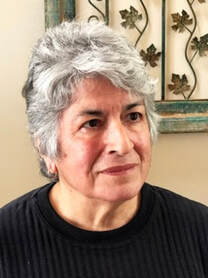
The Red Beast
It flickered to life and licked the dry grass around it, lapping up sustenance to appease its hunger. It grew, spreading its extremities to gather more water-starved vegetation into its maw. The brown, parched weeds whetted the beast’s appetite, and it turned on its creators. The nameless group gave the outcry as they escaped, the alarm echoing from one hill to the next. The flora recoiled and the fauna fled in terrified retreat. The red beast grew and spread and devoured all in its path. It had no plan. Mindless consumption drove it forth. It created new fronts and doubled in size in a matter of minutes. It reached for more food to fuel its advance.
 “A few days before we evacuated on April 22.” Photo and caption by Carmen Baca.
“A few days before we evacuated on April 22.” Photo and caption by Carmen Baca. It fed voraciously on the forestlands beneath and those surrounding Hermits Peak. Those in command of the fire fight announced the coming days would be catastrophic; the area consumed would grow exponentially with the propulsion of the winds. Those fighting from the skies were forced to abandon their pursuit while those battling on the ground retreated more than they advanced. The intensity of the monster’s hot, fiery breath would have incinerated them otherwise. The morning and evening reports about the swift growth of the red terror struck those of us closest to the path of the enemy. We learned how to navigate several fire maps online, our fear weighing us down and our anxiety burning in our guts as we saw the burned area growing larger by the hour.
And the now enormous enemy continued to fill its belly with everything in its path, devouring one house here and leaving the neighbor’s over there untouched. The monster didn’t choose its food; its wind-driven route determined which structure it ate and how many of them fed its hunger. The people from the hamlets, the villages, and the rural communities obeyed the orders to evacuate: San Ignacio, Las Dispensas, and Las Tusas first, followed by Rociada and Gascón, our closest vecinos in Tierra Monte several miles away, and us.
A week later, the neighborhoods on the far west side of Las Vegas received the alert to evacuate. The beast had followed us, about four thousand evacuees in total, and now threatened close to thirteen thousand more New Mexican residents. Two colleges in the vicinity evacuated, and the town shuddered in fear that night. Days later, the erratic winds blew the gargantuan southwest toward San Geronimo and northeast toward the communities of Sapello and La Tewa. After another few days, more communities fled. Social media flooded with all manner of posts from photos to videos of flames people shot from their front yards. Glimpses of the red beast from many locations made the national newspapers.
The red beast played a game of Russian roulette with the land, ingesting one section of forest and leaving another over the next hill alive, devouring an entire rural community while bypassing the one beside it. Like Death, the beast was indiscriminate. It felt no empathy for those whose lives it afflicted, feeding itself with their priceless treasures, heirlooms, and family inheritances. It bore no sympathy for the flora or the fauna it consumed.
Close to 80 days passed as the monster fed itself, terrorizing the people and the animals in its path. In early June, with over 341 thousand acres of destruction in its wake, it slowed in consumption. Some days it held in containment; other days it grew by several hundred acres. We hoped the end of the nightmare was close.
But we also knew it could revive in any location where hot spots remained, those smoldering trunks or burning utility poles, dense material not easily extinguished. The beast, even in pieces, could threaten us once more. It wasn’t likely to return over the already destroyed areas since it sought fuel to reanimate. Our forestlands were burned or badly singed, but our Cañoncito, the valley between the mountains, remained mostly intact the night the fire head swooped over us and left our vecinos in Tierra Monte with nothing. A shift of the winds could bring the flames back upon us. We prayed for the beast to become more subdued by the day until we could draw deep breaths and let the anxiety fall off our bodies. We longed for blue skies and days without rising plumes.
The scientific theory meteorologists offered was that the monsoons came early in June of 2022. We Norteños know the truth. We, the victims of the ravenous monster, touched the hearts of our forefathers with our prayers and our tears of helplessness. We had done nothing to bring the beast down upon us. Nothing.
The same people who gave life to the monstrosity known forever more as the Hermits Peak Calf Canyon Fire now warned us we needed to steel ourselves for the next disaster: floods from the burn scars left in the wake of the beast. As though trying one last weapon to assault us, the beast did as predicted. The monsoons fell gentle and steady at first, not in downpours or cloudbursts. The Ancianos in the heavens cried with a quiet sympathy for us, their progeny, and our plight. The tears brought refreshment to the parched earth with a gentle touch.
Then the rains turned more fierce and the almost daily flooding ensued, and we knew our Antepasados’ hearts had broken. Their sorrows combined with ours as we watched what had survived the fires now succumbed to the destruction from the flood waters. The red beast had been vanquished after 144 days, but it took out its revenge long after it had breathed its first breath.

Photo and caption by Carmen Baca.

“Piano”
“I don’t need help to sit down!” Mama says, slapping the usher’s hand away.
“You’re late,” I whisper, grudgingly making room for her in the pew. Dressed up for Papa, I’m wearing a fitted black dress with tiny hand-sewn turquoise flowers, a Oaxacan shawl, large hammered gold hoops, black hair pinned up.
“Hello, Raquel,” Mama says pleasantly, sitting on the fringe of my shawl. “Such beautiful music.” And she commences to hum along with the vocalist. Yanking the shawl loose, I close my eyes and pretend she isn’t there.
****
After the service, our family gathers at Tito’s house, where we wolf down plates of homemade chile verde, throw back shots of Herradura and recount the same cherished stories we always do whenever we get together. A favorite is how one Thanksgiving—this was before Mama abandoned us—we children were squabbling over the drumsticks—and Papa asked if he could just this once have some peace around the table. Seven-year-old Tito, thinking he was being real hilarious, smugly handed Papa the bowl of peas, whereupon Papa angrily slammed his fork on the table. We watched in horror as the fork slowly became airborne and cracked the kitchen window. We ate in chilly silence until the pumpkin pie with whipped cream made us boisterously happy again.
Tito says, “’Member?” We laugh at the timeworn anecdotes, fall silent with grief. At the ripe age of thirty-nine, Ellie gets up to dance, leading us in a raucous chorus of “Papa Was a Rolling Stone.” Missing Papa’s delighted belly laugh at his youngest daughter’s antics, I suppress a shuddering sob. Ellie’s kids bickering over a toy feels like the saddest thing in the world. Tito brings Mama a cup of té manzanilla and fusses over her. She eyes the proceedings from a corner armchair, the feathered hat like some ridiculous canary atop her head. She’s on her best behavior.
Of course, it doesn’t last. Barely three weeks pass before the director of the Thirtieth Street Senior Center calls me at Galería Libertad, the community art center I direct, asking to meet with Mama’s family, meaning Tito and me, since Ellie is safely back in Phoenix. Thirtieth Street is where Mama eats lunch on weekdays, takes piano classes, and is an active member of Mr. Topper’s Mission Tappers, no tapper under seventy-five. Before he died, Papa spent his Saturdays playing poker at Thirtieth Street.
“I realize this is a difficult time, so I do apologize,” Mrs. Whitmark says, her lipstick pomegranate pink. She pauses, looks up through bifocals, and an all too familiar despair washes over me. To most people, Mama is an eccentric elder with a mind of her own. Some of us know otherwise. “Mrs. Flores is accusing people of stealing from her purse. Everyone is suspect—the other seniors, the janitors, the cooks, even myself. It’s quite upsetting. Your father helped calm her whenever she got this way, and now we need her family to step in.”
“Of course,” Tito says, nodding. “We’ll talk with her.” Tito is a machinist for the transit system. He’s completely overbearing, but somehow women find him fascinating. He’s been married twice with no children, while I can’t seem to find my match, romantically-speaking. Tito has no idea what I do at Galería Libertad. He teases me by introducing me to his friends as “my sister, the starving artist,” and he’s not far wrong. But in the Mission arts community, I have found friendship, love, sustenance. My home.
“Losing Dad hasn’t been easy for Mom,” Tito continues. I love my brother, but when it comes to Mama, he ticks me off.
“She’s crazy,” I say flatly, brushing a strand of hair from my eye. After Papa’s funeral I’d shorn my long hair into an asymmetrical what-I-hoped-was-stylish cut.
Tito shoots me a foul look. But crazy explained my mother who, one ordinary morning after Papa had gone to work, made us children breakfast and sent us off to school, then took a train back to her hometown in New Mexico. To stay.
Tito was ten; Ellie, six. I was twelve.
In the chaos that followed we all pitched in to help Papa with shopping, cooking and housekeeping. That was the easy part. After Mama left, Ellie suffered from debilitating headaches and Tito was suspended from school every other week for one thing or another. Papa began drinking heavily. There was no one to turn to. My parents had grown up in New Mexico, but we were born and raised in San Francisco in four rooms on Shotwell Street, miles away from kinfolk who gossiped about the neighbors, shushed children at weddings and offered solace when worlds shattered. I was raw with anger at Mama, praying that she’d return to us, declaring that she wouldn’t dare.
“Maybe,” my best friend Anna said, “she ran off with a lover.” Prone to dramatic flights of fancy, Anna with her black cat’s-eye glasses concocted wildly romantic stories about our favorite middle school teachers. Now she had one for my mother.
Maybe you can just shut up,” I said. A weak response, but heartfelt.
Crazy explained Mama’s sudden reappearance in San Francisco five years later. That was the first time a social worker told us Mama was “mentally and emotionally unstable.” But I knew he meant crazy, and for that I was grateful. It explained her crying jags, her periodic paranoia, her denials that she needed help, her refusal to take prescribed medication. Crazy summed it up.
In Mrs. Whitmark’s office, Tito loudly clears his throat and promises that he will get Mama to take her meds.
“Good luck,” I say, grabbing my daypack.
Tito is uncharacteristically silent as we leave Thirtieth Street, his broad, good-natured face splotchy. As soon as we reach my beat-up Toyota, he lets loose. “You were out of line, Rocky, calling Mom crazy! She’s our mother!”
Tito and Mama wrote each other regularly after she left. She worked in a café near Taos, and, as we found out later, had reconnected with a high school flame. I was horrified. Tito and Ellie visited her summers, but I refused. When Mama returned, my siblings were elated, being younger and obviously needier than I was. In the five years she’d been gone, I had become 100% Papa’s girl, Athena sprung from Zeus’s head, full grown and battle-ready. Papa never dissed her, but I held her responsible for his alcoholism, his melancholy, for all of us having had to answer endless questions from teachers, busybody neighbors, and shitty strangers who felt sorry for us. Because what’s more pitiful than motherless children in a strange land?
So when Tito says, “She’s our mother,” I say, “You’re entitled to your opinion, Tito. I have to go. We have an exhibit of Cuban posters opening in a week.”
“Weird haircut,” he snorts. He gets into his car and peels out, as if he were sixteen instead of forty-one. I burst out laughing as his Midnight Blue Chevy leaves fat skid marks on the asphalt.
The next time I see Tito, I’ll ask about his prize roses. We Flores don’t say Sorry, even when it’s called for, or a straight-out up-front I love you, even though we do. After an argument, when one of us asks about the weather, it means I’m over it. Dancing salsa after a backyard barbeque means I love my family, or I love the whole fucking world and everything in it. Things go unsaid for days, even years, the love, anger or sorrow pent up inside like a great accumulation of molten lava below surface, wanting release. It’s the Flores way.
Friday evening, I’m at home on the computer, writing wall text for the exhibit, half listening to Jeopardy. The category is “Shakespeare,” the answer is “Doubtful Dane.” My cell buzzes—Ellie in Phoenix. I ignore it. We used to watch Jeopardy, Papa and me. He admired Alex Trebek. Debonaire, brainy and not above showing it.
A contestant hits her buzzer and shouts “Who is Hamlet?”
On Ellie’s third call, I answer, muting the TV.
“Mom’s not answering her phone,” my sister says.
“I wasn’t answering my phone either,” I chuckle.
Ellie ignores me. “Mom was perfectly fine yesterday—Tito says she’s taking her meds, but now I’m worried.” Usually, Ellie asks about what’s happening at the Galería, or about my mostly pathetic, sometimes hilarious dating forays in the six months since I broke up with Julián. Not this time. “Have you seen Mom since the funeral?”
On television, Alex Trebek’s lips announce Final Jeopardy, inspiring looks of consternation in the contestants. The category is “San Antonio, Texas.”
“Remember the Alamo?” I ask Ellie, wishing she didn’t live so far away. I miss our sisterly heart-to-hearts over her homemade biscochitos and wine.
“Come on, Rocky, would you just get over there and check on how she’s doing? Tito’s in L.A. this week.”
I sigh loudly, meaning yes.
“Great! Love you!” she says, and hangs up. And the burden shifts to me.
Mama lives in the same paint-peeling, rent-controlled Edwardian flat we were raised in, located in the heart of the Mission—what the realtors gleefully call “a neighborhood in transition.” No doubt. Since 1492.
The door cracks open.
“Hi.” I slide my foot inside before Mama can decide whether or not she wants a visitor. “It's me, your daughter.”
“I know.” Hazel eyes peer up at me through huge red eyeglass frames. Mama is queen of her private little planet. She’s wearing a crimson apron with gold rickrack trim over a blue sweater shot with silver on top of a fuchsia dress. Purple leggings, lambswool slippers and a silver “Hottie” pendant complete the look.
We are nothing alike. Born in the history-rich Abiquiú, New Mexico, Mama grew up speaking Spanish but she looks like a gringa with pale skin, auburn hair, light eyes like a wary cat. I’m dark like Papa, and proud of it. His first language was also Spanish, but his maternal grandparents were Taos Pueblo. I dress in black: turtleneck, jeans, boots. I do rock the earrings, however; the showier, the better. Today’s earrings are humongous crimson Lucite hearts, a gift from a Oaxacan artist.
“What happened to your hair?” Mama says.
“Why don’t you answer your phone?” I counter.
The flat smells of Papa’s Tiger Balm and tobacco. I have to stop and catch my breath.
“What’s wrong with you, fighting with me already?” Mama looks down the street before closing the door. “I thought you were someone else.” Her tone sweetens. “How are you, anyway, Raquel?”
An ordinary question in an affectionately maternal voice, perfectly calculated to derail me. She does this every so often, and when she does, my heart flips like a kite in high wind, and I wonder what it would be like to have a real mother. Would we go to museums together? Would we shop for shoes, get our nails done? What do regular mothers and daughters do? The question slams into me whenever I run into girlfriends with moms, enjoying themselves. Mama hadn’t been there to help me buy my first bra or see me win first prize in a high school art contest. There was more I’d missed, things more profound. I just didn’t know what.
The hallway is piled with boxes.
“What’s this?” I ask.
“I called Goodwill, but they’ve gotten choosy…your father kept everything: clothes, magazines, rusty tools.”
A wave of fear hits me. “Goodwill? Where’s his brown suitcase?” Blood thunders in my ears. I catch a glimpse of myself in the hallway mirror. I look exactly the way I feel, bug-eyed and off-kilter.
“There’s more in the garage. Not interested in old junk. Old junk, old men, old ideas.” Mama laughs, apparently delighted with herself.
Old junk? “Please, please, don’t give anything away! I’ll get Tito to bring his pickup next weekend and we’ll take it all.”
She disappears into the front room where the furniture—sofa, coffee table, Papa’s La-Z-Boy—has been moved against the walls. She pulls aside the lace curtains on the bay windows and looks out to the quiet street. “The piano should be here by now.”
“Piano?” She doesn’t need a piano. Tito gave her an electric keyboard on one of her birthdays. It’s programmable, so that she can play tango, classical or her pop favorites. Papa would read his detective novels in his recliner, foot tapping while she plinked out Beatles tunes note by note.
I never understood why he took her back.
“Respect your mama,” Papa admonished me when I gave her attitude. “No matter what, she is your mother.” Respecting Papa, I shrugged. I was seventeen when she returned to Shotwell Street, my eyes were already focused on college and the wider world.
Turning from the window, Mama says, “Can I borrow ten dollars until Friday?”
I dig into my bag and hand her a ten and a twenty. “Just keep it.” I feel vaguely virtuous, giving her something without begrudging it.
“I said borrow, Raquel, and only ten until Friday when my social security arrives.” The folded bill disappears into her apron pocket.
“Whatever. I’ll have some water and then I’m out of here.” Running the faucet in the kitchen, I check for signs to report to Ellie. Cereal bowl in sink, oatmeal encrusted. Golden moth orchids I’d bought for Papa at the Alemany Farmer’s Market, shriveled and fallen onto the windowsill like exploded firecrackers. Portrait of the recently-elected President Obama. Wall calendar from La Palma Mexicatessen, inked Xs marking the days. Today is April 6. No X as yet.
Mama is right on my tail. “I pay my debts. I’m not like that Julián of yours. He still owes me money.”
Here we go.
“Jeeze. It was change for a parking meter.” I feel my temperature rise. “I’ll repay you! And you can forget Julián because Julián and I are not together!”
Papa’s eyes got cloudy as he aged, but not Mama’s. Her eyes are like new-minted dimes, bright with gotcha. “I don’t forget. Julián shouldn’t be borrowing from old ladies. I’m glad you’re rid of him. It’s better to be alone, Raquel. You’re smart, like me. The smartest of my children.”
I’m floored. Mama has never expressed the slightest interest in my life or anyone else’s for that matter. Although mortified by the comparison, I can’t help being flattered that she considers me the smartest.
“So,” I say, softening. “You’re renting a piano?”
Her arms fold defensively. “It was on sale.”
“You bought a piano?” Baffled, I pull out a chair and sit at the kitchen table.
“For my music lessons, Raquel.” Still standing, she bristles with nervous energy, her pendant flipped so that it reads “eittoH”.
“What about the keyboard Tito got you?”
“I need a real piano. Besides, Tito steals from me.”
Yup. Genial to eccentric to crazy at maximum velocity. The woman who brought me into this world is fundamentally incapable of being the mother I long for. I know this in my heart, in my brain, in my gut, in my very pores, and yet she gets me every time. I rise to tighten the dripping faucet, then turn to face her.
“Look, Tito’s here every weekend, and when he can’t, he calls to see how you’re doing,” I say, defending my brother. “Why do you give him such a hard time?” A better question is why am I trying to reason with her?
“You know damned well I can’t trust him.”
I take slow, deep yoga breaths. Do not engage. Do not engage. Mantra for Mama.
Outside, a vehicle rumbles to a stop. “It’s here!” she says. I follow as she rushes down to the sidewalk, patting her hair in the mirror on her way out. A deliveryman in a maroon jumpsuit strolls toward us from a double-parked delivery truck.
“Piano?” he asks me. He has sleepy eyes, a pencil-thin mustache, a clipboard.
“You’re late!” Mama says.
“Sorry, ma’am.” He tips his cap back. “I’m Jesse and that’s Murphy.” Murphy is pulling a ramp from the back of the vehicle. Mama ignores Jesse’s proffered hand.
“Where does it go?” he asks me.
I blink, smiling. “I’m just an innocent bystander.”
“Up here,” Mama interjects, leading us up the steps and into the living room.
“You ordered a Yamaha grand?” Jesse is finally addressing questions to the right person. “Ma'am, we get a nine-footer in here and you won’t have room to sit down and play.”
“There must be a mistake,” I say.
“I don’t need much room,” Mama says, shooting me a dark look. “Move, Raquel, you’re in the way.”
So be it, I think. I’ve always been in your way, we all have, Papa, Ellie, Tito. You could have continued therapy, taken the pills, and avoided the crises that your family—not that you recognize us as family—have had to rescue you from over the years. Selfish, selfish, selfish. I back myself against the hallway wall as the movers expertly rotate the piano to make the tight turns. Well, I’ve done my duty. My report to Ellie: Mama is alive. Mama is well. Mama is impossible.
“I’m coming back this weekend for Papa’s stuff,” I say, “and will you please answer your telephone? Because Ellie and Tito worry about you.”
As I take off, I hear Mama telling the deliverymen, “There’s ten dollars for you when you’re done.”
****
On Sunday Tito is wearing his annoying “I’m just a regular vato from the barrio” get-up—Ben Davis work pants and his “Stay Brown” t-shirt from the San Jose Flea Market. We’re both wearing Giants caps. The sun is out, there’s a game this afternoon. I’m anxious to get back to the Galería where volunteers are painting the walls.
“We’re here for Papa’s things,” I say, when Mama comes to the door. She is channeling Cher today: red tunic, shaggy vest, ankle boots. Gray wisps escape a blue-sequined beret the size of a small pizza. “God, open a window! Aren’t you hot?”
“Leave me be, Raquel. You know I’m always freezing,” she says. “I'll make coffee now that you're here, Tito.”
My brother is definitely her favorite child. There are times I believe he is the only person in the world who can get through to Mama, but when I really think about it, I shake my head, No. Because after his visits she accuses him of stealing and she cries. Always.
“Momskh!” Tito says, draping his beefy arm around her shoulder, “Where’s the pianoskh?”
Mama’s eyes light up. Tito has invented this Russian-esque language just for her.
“Who told youskh?” she giggles, leading us to the living room.
Tito halts theatrically in the doorway, throws his hands up in wide-eyed astonishment, “Whoa! That’s some piano!”
The piano is impressive, gleaming ebony, padded leather bench tucked underneath, filling the room like one of those clipper ships crammed inside a tiny glass bottle.
“What do you think?” Mama is giddy.
“What do I think?” Tito bellows. “What do I think? Takes up a lot of space!”
Somehow this is the right answer. Mama practically squeals with pleasure. If there were room she’d be pirouetting around the piano.
“It's ridiculous,” I say, addressing Tito. “If she needs a so-called ‘real’ piano, which I doubt, a used upright makes more sense.” Tito’s look tells me to can it. “This is a piano for professionals,” I emphasize, unable to help myself. I’m the director of a community arts center. I believe that everyone has the capacity to make art, to enjoy a creative life. This is my work, yet I can’t manage to extend this value to Mama. I feel like a miserable imposter.
“I love it,” Mama says, defiantly.
“Play us something, Mom!” Tito doesn’t have to ask twice. Mama climbs onto the bench and sorts through dog-eared sheet music. She begins playing “De Colores” and Tito, leaning over her shoulder to read the lyrics, sings with her. Both are seriously off-key.
I escape, taking the kitchen stairs down to the backyard where weeds are suffocating Papa’s tomato plants, and enter the garage from the side door. Underneath the floorboards, the caterwauling is mercifully muted. Papa sold his car awhile back, so the garage is now storage space. I wade through boxes and furniture before I find what I’m looking for: Papa’s brown leather suitcase. Wrenching it free, I wipe the cobwebs with an old t-shirt and sit cross-legged on a box, my heart at peace. The tarnished metal fasteners make a satisfying pop.
Lifting the lid, the faintest scent of tobacco in the yellow silk lining sweeps me back to another time. It must have been fall. The living room windows were dripping condensation. Mama had been gone a year. I was still crying myself to sleep.
Papa set the suitcase on the coffee table. “Let’s see what we have here,” he said, a cigarette in one hand, a can of beer nearby. His hair was still coal-black, but he was starting to get a paunch. He’d drag out the suitcase now and then, often during the holidays, to show us his treasures—a jumble of photographs and souvenirs—a pretext for his stories of back home.
That day it was only me sitting by his side on the worn sofa. I reached for a sepia-tone studio portrait of an elegant native woman in a 1940s fur coat. “Who’s this?” I knew the story by heart, but I never tired of his stories of wicked uncles and chain-smoking grandmas, homesteads and adobes, farmers and dressmakers, sheepherders and coal miners, pueblos and penitentes, trains, abductions, adoptions, fires: tales of love, tragedy and survival reaching back across generations to New Mexico Territory and beyond.
“My first cousin Josie, on my mother’s side. She had a tailoring shop in Santa Fe. She was a sharp cookie, married and widowed three times, the last husband a Navajo. She liked them young but it didn’t matter. They still died on her.” We chuckled.
I pulled up an unfamiliar snapshot of a couple picnicking on a blanket at Ocean Beach, the Cliff House in the hazy distance. “And this one?”
A shadow crossed Papa’s face. With a sinking heart I recognized my youthful parents in a happier time. Silence flooded the room. Papa’s thoughts seemed to alight on something not in the picture, the ashes on his cigarette trembled. Finally, he smiled, seemingly chagrined by his thoughts.
I switched the photo for one of Papa as a boy and his older sister posing in front of a Ferris wheel.
“I wished I’d known Auntie Rose,” I said. Papa never returned to New Mexico after he and Mama moved to San Francisco—his immediate relatives had moved away or died by then. If there were other reasons, he never shared them.
“You remind me of Rose, mi’ja,” he said. “Sparky as hell.”
Besides photos, there is a ledger of the early 1900s written in Spanish and English, discharge papers, faded postcards from distant relations we children never knew, yellowed newspaper obits, a ruby ring won in a poker game, a ring neither ruby nor gold.
This is what I came to rescue from Goodwill. My father’s life in a suitcase—all we have left of him besides his stories etched into our memories, tales that kept our family tethered to our history, to this land, to each other.
I secure the suitcase, one snap at a time, and haul it up the back stairs to the living room where Tito and Mama are hammering out “That’s Amore.”
Tito insists on getting burritos and a six-pack for lunch. We dine on the kitchen table of our childhood, while Tito tells us about his new lady friend, a teacher. Mama tracks his every word, the better to throw in his face one day. Tito is oblivious.
Someone in the building has the game on, radio turned full blast. “The bases are loaded with two men out! Herrrrrre’s the pitch!” When we were kids, listening to the Giants with Papa was the best. Halting in the midst of whatever we were doing—peeling potatoes or washing the car—to visualize the players at the ballpark, we held our breaths, waiting to hear Jon Miller yell, “The ball is up, up…it’s out of here!” My spirits lift remembering how we’d yell and high five each other. Then the heaviness in my chest returns.
I claim the suitcase when it’s time to go. The rest of Papa’s things will go into Tito’s garage until Ellie can come out to help sort it all. On the sidewalk, Tito stretches and grins. “Mom’s doing okay,” he says. “We’ll just have to check in on her more often.”
“Do you know what a piano like that costs?”
Tito’s smile vanishes. “Don’t worry about it, Rocky, I got it covered.”
“She can’t wait to get rid of his stuff.”
“You can’t know how anybody feels except for your own damn self.” Tito’s voice is hard. “Mom does the best she can. You’re past forty. Is this who you want to be? We grew up with her too. And what’s with that haircut?”
Glaring at my brother, I slam the trunk lid closed and get into my car. Wiping away tears, I turn onto Valencia Street, glad to be heading to the Galería. Three signal lights later, I realize I’ve forgotten my Giants cap and make a U-turn in the middle of the street. On Bartlett I drive by two little girls playing hopscotch on the chalked sidewalk like Ellie and I used to do, and pull up in front of the Lermas’ building that has a For Sale sign. Sal is sitting on the stoop, drinking beer and listening to oldies on KPOO.
“Hey Rocky. Sorry about your father,” Sal says, as I exit the car. “We lost a good man.”
“Thank you.” I’ve known the Lermas since forever and wonder whether they’ve found a place to move to. Before I can ask, I’m distracted by the faint sound of music coming from Mama’s flat. I climb her stairs and peer through the open bay window, past the lace curtains, where she sits half-hidden behind the big, lacquered instrument. Her fingers strike the keys as she squints through her enormous, red-framed glasses at the sheet music, her voice tentative.
“Sweet dreams till sunbeams find you…”
The playing is measured and precise. The voice not so much, even as it picks up tempo and exuberance.
“Sweet dreams that leave all worries far behind you…”
I take a breath as my heart unexpectedly catches on a surging memory of Mama sitting on my bed when I was a girl, singing me to sleep. Cozy in pajamas, bed covers pulled up to my chin, lulled by her voice, drowsy. Back when she was still my Mama.
“And in your dreams, whatever they be…” Mama warbles with joyful enthusiasm.
The afternoon’s heat has eased. Rising above the ambient sounds of the street—a plane overhead, a skateboarder rolling past—is my mother’s voice falling in and out of tune like a kid learning to ride a two-wheeler. Mama in her blue-sequined beret is swaying, creased fingers moving over the black and white keys of the piano, focused on the task, determined like all of us to catch beauty in this precarious life. The sound of the music awakens a raw tenderness in me, if only for the moment. Brushing unexpected tears from my eyes, I sink onto Mama’s front steps to listen.

Mrs. Reed’s Christmas Tree
For most people, childhood Christmas memories serve as imaginary gold nuggets treasured for a lifetime.
One of these gems is also my earliest recollection of when I first learned the true meaning of Christmas giving.
It was 1953; I was about nine years old and in Third Grade at Central School in Laredo, Texas. Mrs. Reed was my teacher. Authoritative, yet warm and friendly, Mrs. Reed was a classic elementary school teacher. Effective and practical in her no-nonsense approach to teaching, she constantly challenged us to learn. In her classroom, “Eyes and ears on the teacher” was the rule.
A few days before the Christmas holidays vacation, she would purchase a small Christmas tree and placed it in the middle of one of the classroom work tables. She also bought the tinsel and garland. Then, each student in class was asked to donate one ornament. They could either make it in class or bring one from home. Trimming the tree was an extra treat for us students. As a reward for good behavior, she allowed us to help her adorn the tree, which was done a little each day. By the time we had our class Christmas Party on the last day of school, the tree was finished. Not all teachers went the extra mile. So, after lunch on that special Friday, teachers formed a line outside our classroom and brought their students to view and admire our creation.
Barrio El Azteca was mostly poor blue-collar. Most of our neighbors were hard-working day-labor folks and migrants. They arose before day-break and returned home at nightfall; dead tired after their day at a building site in town or working at one of the area’s ranches and farms. The next day, they did it all over again. Their pay was dismal; and employment for day laborers was erratic. Knowing that Christmas trees were a luxury in some children’s homes, Mrs. Reed responded with her own style of kindness. During the last day of school, she put all our names in a bag. She then asked a fellow teacher to pick a name from the bag. The student whose name was drawn won the Christmas tree.
More than anything that particular Christmas, I prayed that I would be the lucky winner. Having overheard my parents a few days earlier, I knew money was tight in our monthly budget. It seemed that they might not be able to buy a Christmas tree for us that year. That’s not to say that our house wouldn’t be decorated for the season. Mother always did a great job decorating our home with very limited resources. Too, the center point inside the house was a small Nativity set in the living room. Yet, the spot reserved for the tree was empty.
So, it was with great anticipation that I welcomed the last day of school before our Christmas break. The Christmas Party was well underway that afternoon, when all of a sudden, I heard my name called. I couldn’t believe it. I had won the prize. When the dismissal bell rang, I asked Bernardo, a classmate, to assist me in carrying it home. He agreed.
Mrs. Reed helped us remove some of the breakable ornaments and she put them in a small box. As soon as we reached the outside of the school building, every step of the way became difficult. First, we had to maneuver a steep stairway in front of the school entry. In one arm, Bernardo carried our notebooks and in the other, the small box with the ornaments. I carried the tree still sporting the tinsel and garland. Second, balancing the tree upright in front of me, my view was very limited. Walking on the unpaved, gravel, street was tricky. So I walked on level ground, avoiding any large rocks that might make me fall. A slight wind was blowing and small bits of tinsel were dropping off the tree, marking our way. We were a sight to behold!
Our house was about six blocks from Central School. Bernardo’s house was half-way to mine. So, before we knew it, we had already walked the three blocks to his home. I placed the tree on the ground and waited for him to drop off his school books and tell his mom he was helping me get home. After a moment, his mother walked out to admire the tree and went back inside. It was then that I realized Bernardo’s home didn’t have a Christmas tree.
Suddenly, a hard-to-explain powerful feeling overcame me. I asked Bernardo to open his front door. Before he had a chance to ask why, I carried the tree inside and placed it by the front window. Hearing the commotion, his mother walked out of the kitchen and I asked her if she would like to keep the tree. She was stunned, and began to weep. She gave me a big hug, nodded “yes”, and thanked me. Then, I helped Bernardo put the ornaments back on the tree. It immediately brightened up the room. As I left, the two of them were quietly standing admiring their beautiful Christmas tree.
When I got home, other kids had told my mother of my winning Mrs. Reed’s Christmas tree. As soon as I entered our home, Mother asked me where it was. When I told her what had happened on my way home, she began to cry just like Bernardo’s mom. Mother gave me my second big hug of the day. She then called Dad at work and told him what I had done. My father, a stern man of few words, but possessing a big heart himself, approved of my charity. That evening, he returned from work with a Christmas tree strapped to the top of his car.
In summary, I tell this story to focus on the plight of today’s needy. Having lived the experience, I am in a position to say that poor people don’t enjoy being poor. Nor are they lazy. That is why they don’t deserve the unkind treatment they receive almost daily from politicians and some news commentators. The fact is the poor are in a never-ending struggle to improve their quality of life. They only ask for a compassionate helping hand to grab onto the next rung in the ladder of success. This Christmas let’s all be part of the solution by helping them do it.

"We have been taught to see and interpret reality through the eyes of the dominant culture"
10/26/2022
An excerpt from Latina/o Social Ethics
Moving Beyond Eccentric Moral Thinking
by Miguel A. De La Torre
A major problem facing marginalized communities, and in our case the Hispanic community, is that since childhood we have been taught to see and interpret reality through the eyes of the dominant culture. For those within the community who pursue scholastic endeavors, the success that is to be rewarded with a doctorate is determined by mastery of the predominant Eurocentric academic canon. Hispanic contributions to the discourse are usually dismissed as nonessential in demonstrating academic excellence. This is evidenced by the numerous scholars in the U.S. who have little or no knowledge of the scholarship taking place among Latino/as.
The triumph of the colonizing process is best demonstrated when scholars of color define themselves and their disenfranchised communities through academic paradigms that contribute to their marginalization. Latina/o ethicists are forced to exhibit academic rigor through the use of ethical models that more often than not are incapable of liberating oppressed communities. These scholars are forced, in a sense, to pour liberative wine into the old Eurocentric ethics skins.
To do so, as Jesus points out, causes the skins to burst and the liberative message to be lost. We Hispanics must pour our own liberative wine into our own ethical paradigms so that both can be preserved together and used by our community, which thirsts to drink this Good News. As José Martí, who needs no introduction among Latina/os, reminds us: “Nuestro vino de plátano, y si es agrio, es nuestro vino.”
The view of the ethical landscape from the pedestal of privilege is radically different than the view from the depths of disenfranchisement. This book challenges the prevailing assumption within the discipline of Christian ethics that the present scholarly landscape, rooted in Eurocentric thought, is the pinnacle of academic excellence.
According to that assumption, held by Eurocentric ethicists, the particularity of scholarship emanating from non-Eurocentric communities, as in the case of Latina/o-rooted ethical paradigms, threatens to weaken the prevailing so-called academic rigor. Voices from the Hispanic community may be needed to show diversity and political correctness, but they must be kept at bay lest they actually influence the discourse. The old wineskins of Eurocentric ethics are based on the presupposition that religion as a discipline is rooted in a nineteenth-century European definition of what education of religion should be. Even though our postmodern conversations may have persuaded the academy to reject such metanarratives, they are still enforced, determining who is “in” (academically rigorous) and who is “out” (has an interesting perspective but lacks academic excellence).
Excellence, that is, continues to mean Eurocentrism. Eurocentric thought, unconscious of how the discipline of religion has been racialized, claims to exemplify a color-blind excellence in scholarship for all of humanity. By its very nature, Eurocentric ethical theory maintains that universal moral norms can be achieved independent of place, time, or people group. Such ethical norms created by Euroamerican ethicists are accepted as both universal and objective, and thus applicable to the Latino/a milieu.
To speak from any Eurocentric perspective is to speak about and for all of humanity, including Hispanics. For this reason, Euroamerican scholars can become experts in the particularity of the cultures of Other, that is, those communities that are deemed “less than white.” Ironically, scholars of color have the particularity of their analysis reduced to subjectivity—to interesting perspectives that fall short of rigor, regardless of how meticulous their scholarship may actually be.
Because whiteness is understood and defined as universal, the insights of scholars of color are often institutionally relegated to a realm lacking any universal gravitas. Nevertheless, marginalized communities of color have long recognized that no ethical perspective is value free. The subjectivity of Eurocentric ethical thought can be lifted by the academy to universal objectivity because the academy retains the power to define a reality that secures and protects their scholastic privilege. Reduced to a phenotype-based expertise, scholars of color are expected to dwell exclusively in the areas of study bordered by their race or ethnicity. Experts in the particular, they are neither expected nor encouraged to speak with authority about Eurocentric thought.
Reduced to and trapped within their race or ethnicity, scholars of color are geared to the particular, where they are continually forced to speak to the center, always attempting to justify their right to exist and the importance of contributions they can make to the overall discourse. And if a Hispanic ethicist were to become an authority on Euroamerican ethicists like Walter Rauschenbusch, Reinhold Niebuhr, or Stanley Hauerwas, she or he would be viewed as an oddity if not aping, for after all, shouldn’t all Latina/os just study Hispanic religiosity?
Hispanic scholars who dare to assess critically the works of formative Euroamerican ethicists face having their critique dismissed. The Latina/o scholar will either be accused of conducting a “thin” reading of the primary texts or be caricatured as angry. As tempting as it may be to level such a critique against Hispanic scholars who challenge the Eurocentric canon, it is important to refrain. Even though the Hispanic ethicist may be portrayed as lacking intelligence or simply hostile, he or she does provide a “double-consciousness” that is capable of revealing what those blinded by their privileged status miss.
As a corrective measure, this book will attempt to create new skins for our liberative wine by using the tools and materials indigenous to our “Latinoness.” But before we are able to use our own Hispanic ethic skins, we must explain why the Eurocentric ethic skins are inadequate—why they will burst. To that end, we will read Euroamerican ethicists “with Hispanic eyes,” seeing, maybe for the first time, how dominant groups have historically constructed ethics to suit their needs and protect their privilege.
The first half of the book will attempt to deconstruct Eurocentric ethical paradigms to demonstrate why they are both detrimental to and irreconcilable with the Hispanic social location. When such paradigms bring suffering, oppression, and death (literally and figuratively) to the Hispanic community, they must be rejected. Nevertheless, the best of mestizaje, our cultural mixture, recognizes the European part of our identity and the ambiguity and irony this creates when we deal with Eurocentric ethical paradigms. Hispanics recognize that even what we should reject in our identity is part of who we are as a people. The challenge is how to delineate and reject those parts of Eurocentric ethics with which there can be no compromise or reconciliation (e.g., complicity with the U.S. Empire) and move beyond those segments of Eurocentric analysis with which we can converse.
The second half of this book will attempt to construct a new Hispanic-centered ethical paradigm rooted in our community way of being. The hope is not only to articulate aspects of how we historically have conducted ethics, but also to examine possible future directions. We search for a dynamic ethics that is not only living, but also lived. This is a Latina/o ethics based on praxis that pursues social justice, here understood as creating harmony within social structures by countering and correcting the undue power and privilege held by the few at the expense of the many.
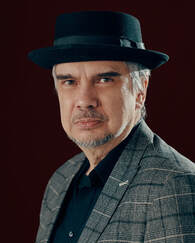
Archives
June 2024
April 2024
February 2024
November 2023
October 2023
January 2023
December 2022
October 2022
August 2022
July 2022
June 2022
May 2022
March 2022
February 2022
December 2021
November 2021
October 2021
June 2021
April 2021
February 2021
January 2021
December 2020
November 2020
October 2020
September 2020
August 2020
July 2020
May 2020
April 2020
March 2020
February 2020
January 2020
December 2019
October 2019
August 2019
July 2019
May 2019
April 2019
March 2019
February 2019
January 2019
December 2018
October 2018
September 2018
August 2018
July 2018
June 2018
May 2018
April 2018
March 2018
February 2018
January 2018
December 2017
March 2017
December 2016
September 2016
September 2015
October 2013
February 2010
Categories
All
2018 WorldCon
American Indians
Anthology
Archive
A Writer's Life
Barrio
Beauty
Bilingüe
Bi Nacionalidad
Bi-nacionalidad
Border
Boricua
California
Calo
Cesar Chavez
Chicanismo
Chicano
Chicano Art
Chicano/a/x/e
Chicano Confidential
Chicano Literature
Chicano Movement
Chile
Christmas
Civil RIghts
Collective Memory
Colonialism
Column
Commentary
Creative Writing
Cuba
Cuban American
Cuento
Cultura
Culture
Current Events
Dominican American
Ecology
Editorial
Education
English
Español
Essay
Eulogy
Excerpt
Extrafiction
Extra Fiction
Family
Gangs
Gender
Global Warming
Guest Viewpoint
History
Holiday
Human Rights
Humor
Idenity
Identity
Immigration
Indigenous
Interview
La Frontera
Language
La Pluma Y El Corazón
Latin America
Latino Literature
Latino Sci-Fi
La Virgen De Guadalupe
Literary Press
Literatura
Low Rider
Maduros
Malinche
Memoir
Memoria
Mental Health
Mestizaje
Mexican American
Mexican Americans
Mexico
Migration
Movie
Murals
Music
Mythology
New Mexico
New Writer
Novel
Obituary
Our Other Voices
Peru/Peruvian Diaspora
Philosophy
Poesia
Poesia Politica
Poetry
Politics
Puerto Rican Diaspora
Puerto Rico
Race
Reprint
Review
Rodolfo "Corky" Gonzales
Romance
Science
Sci Fi
Sci-Fi
Short Stories
Short Story
Social Justice
Social Psychology
Sonny Boy Arias
South America
South Texas
Spain
Spanish And English
Special Feature
Speculative Fiction
Tertullian’s Corner
Texas
To Tell The Whole Truth
Trauma
Treaty Of Guadalupe Hidalgo
Walt Whitman
War
Welcome To My Worlds
William Carlos Williams
Women
Writing
Donate and Make Literature Happen
is published by the Somos En Escrito Literary Foundation,
a 501 (c) (3) non-profit, tax-exempt corporation. EIN 81-3162209




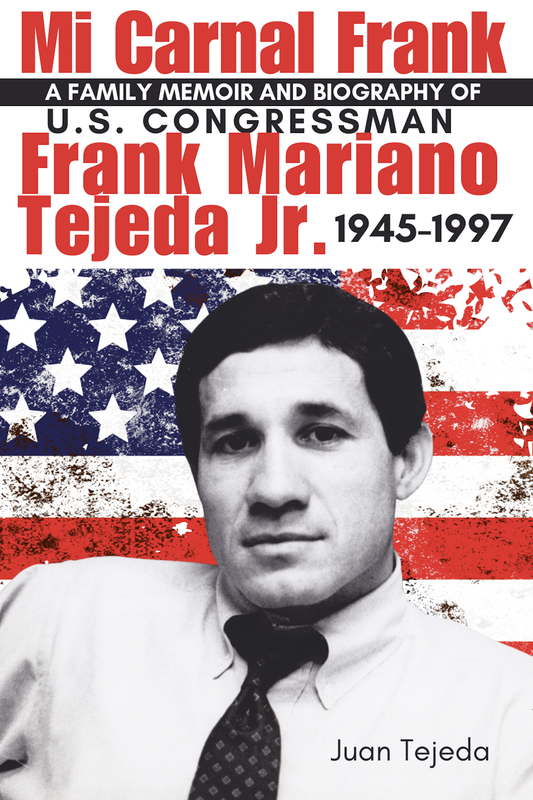





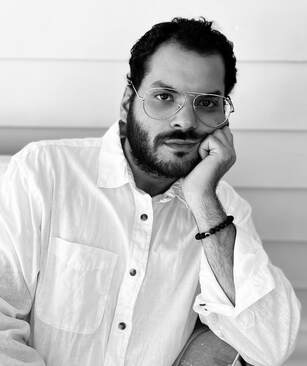
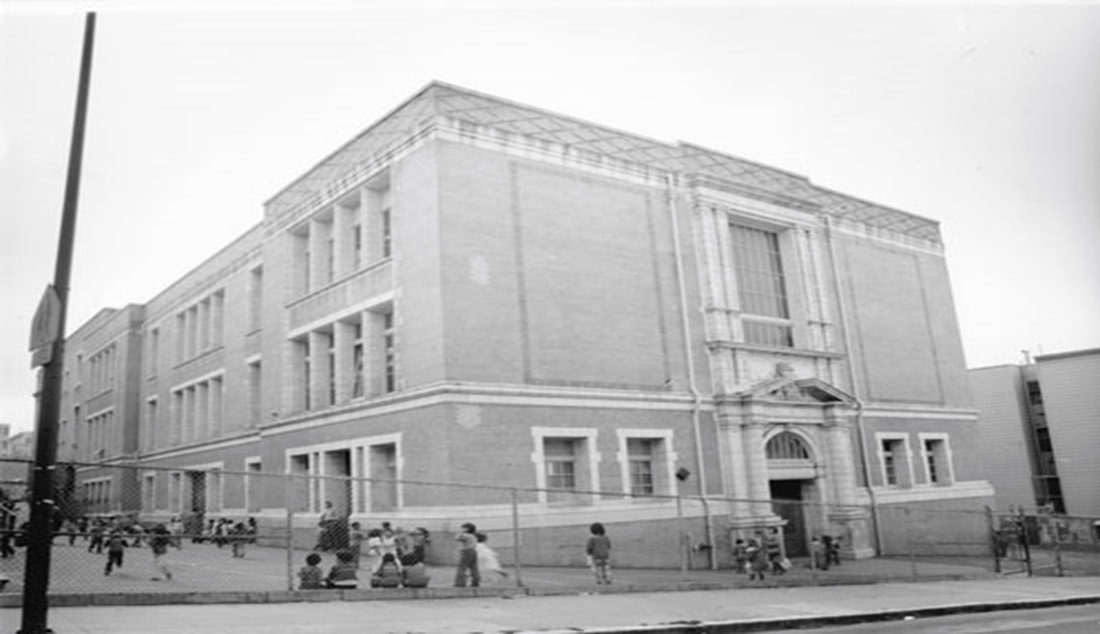
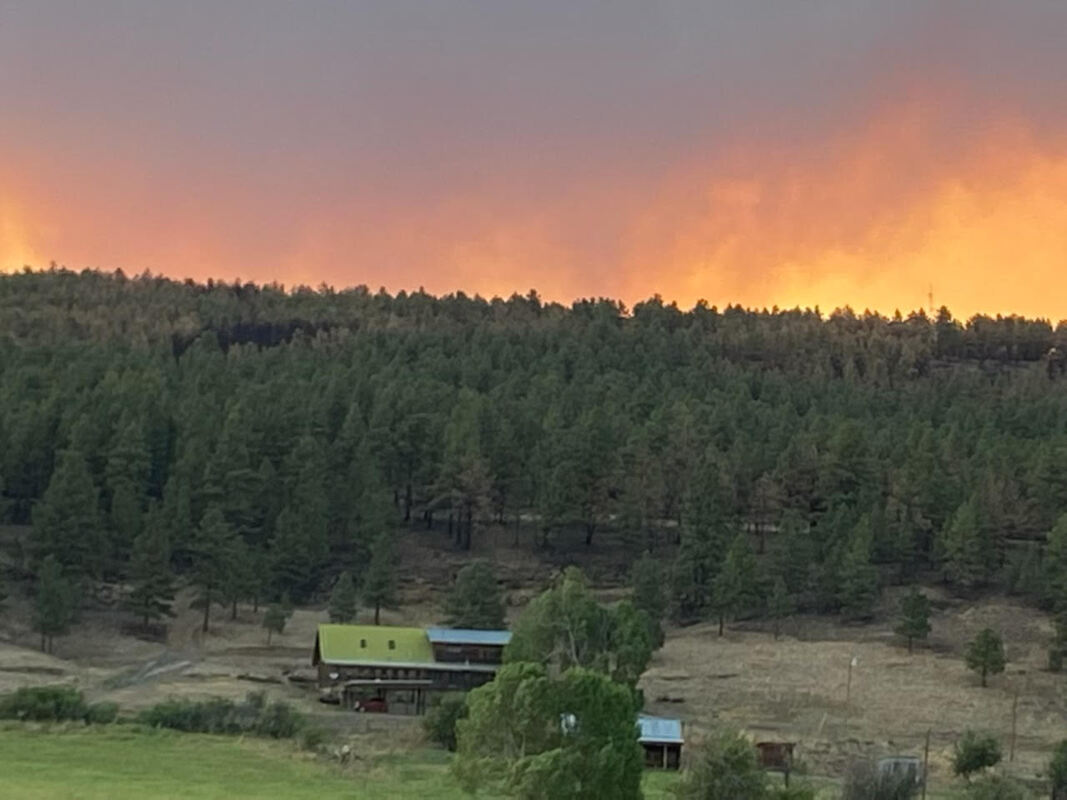
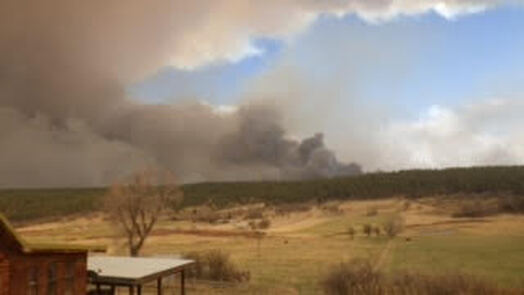
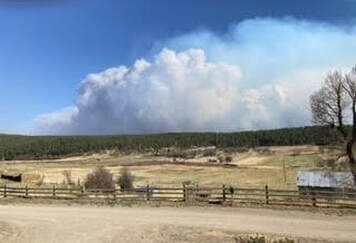
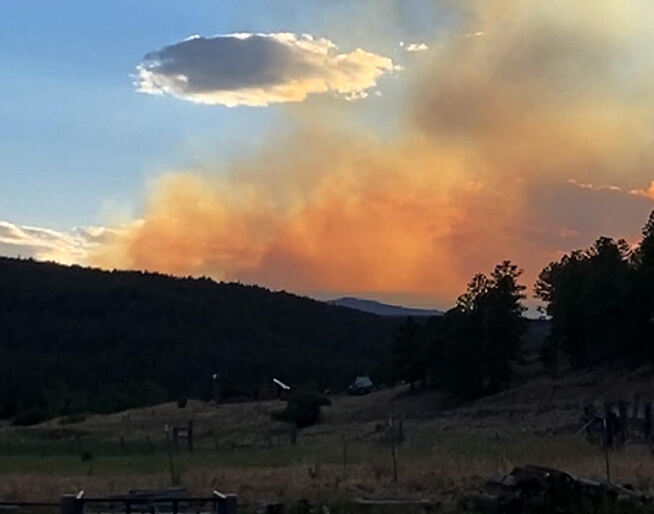
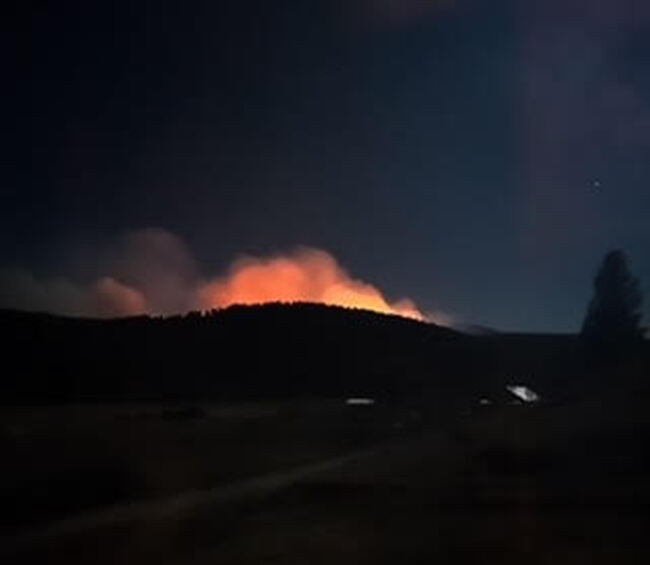
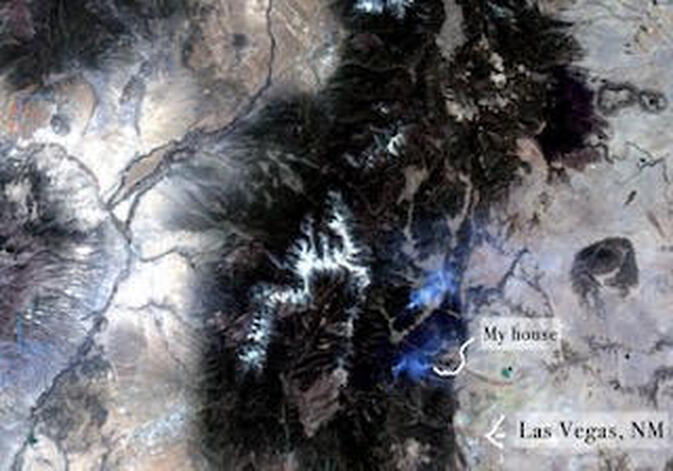
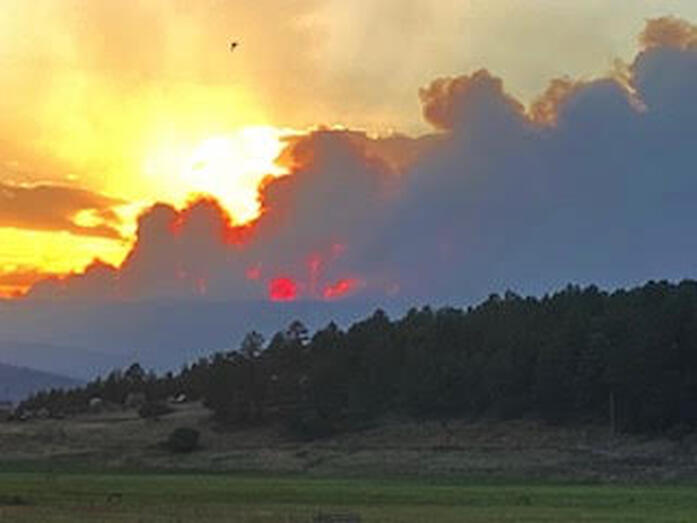
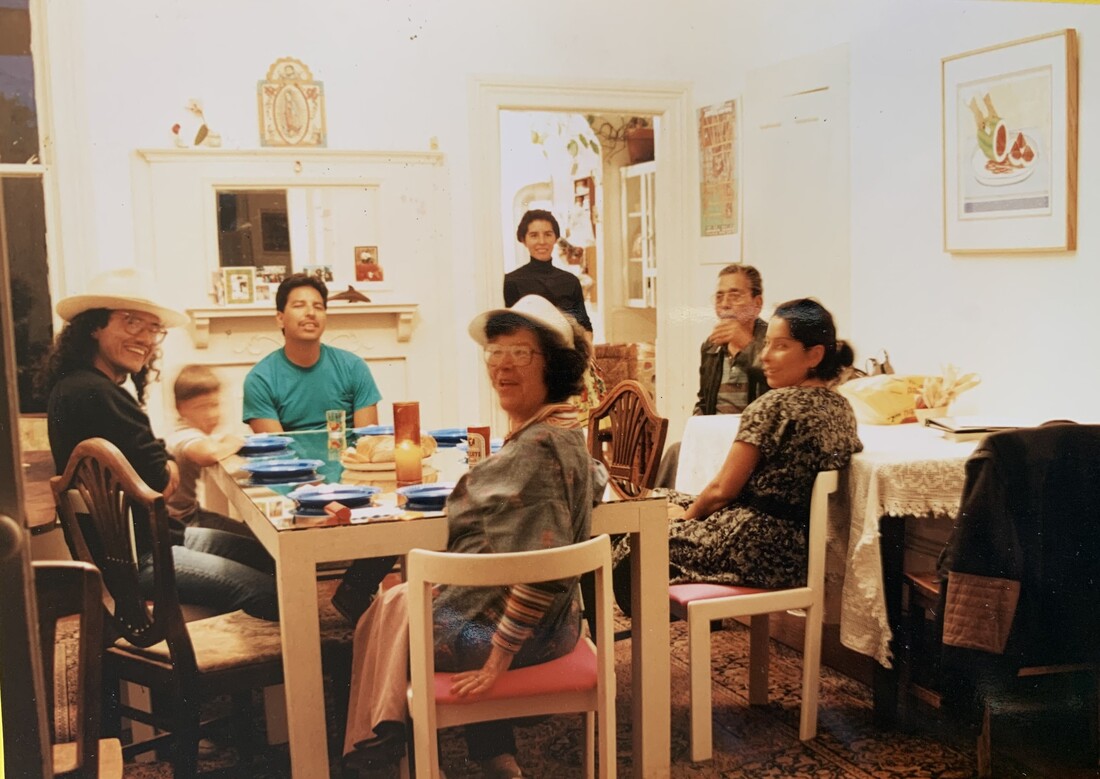

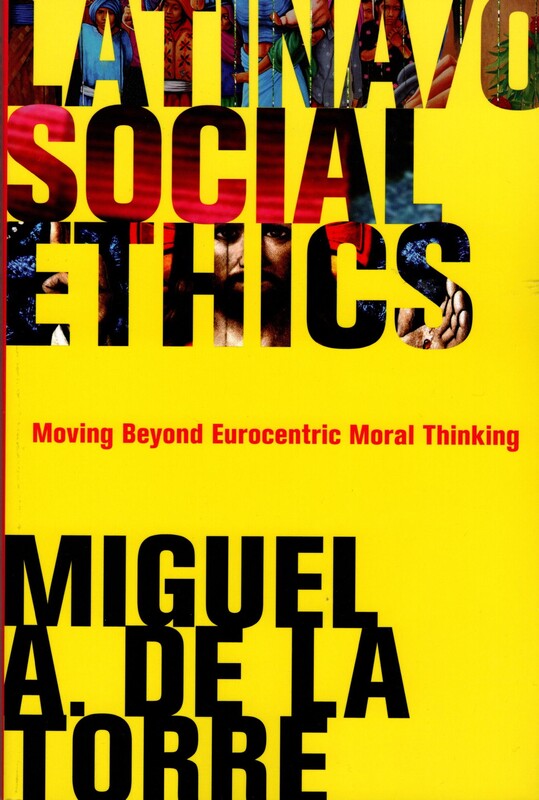
 RSS Feed
RSS Feed